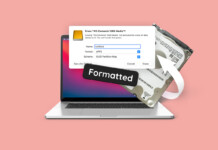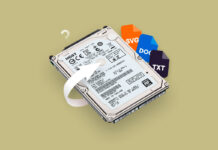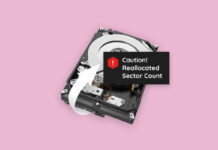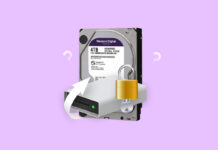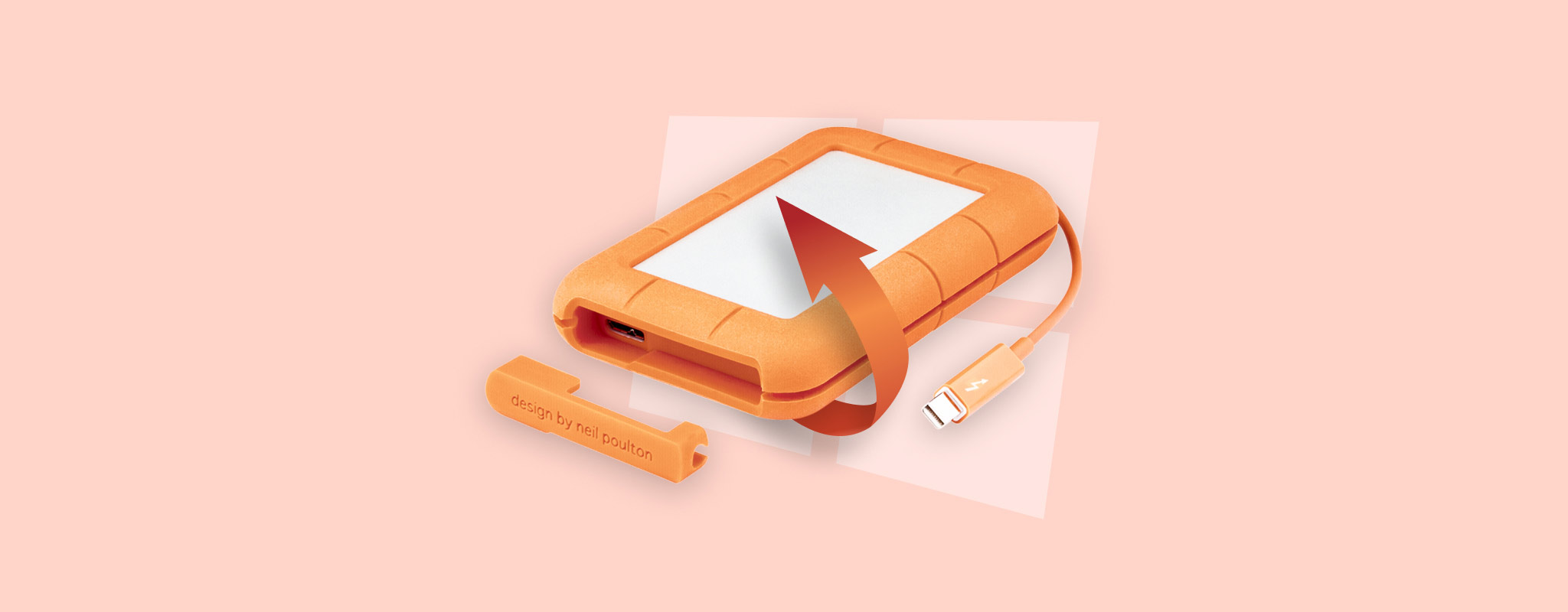 LaCie hard drives come in all sizes, from the LaCie Mobile Drive for casual everyday use to the 6big Thunderbolt 3 that has support for RAID5/6 configurations and up to 108 TB of storage. While the LaCie hard drive range is extensive, it doesn’t change the fact that they’re still hard drives that are susceptible to problems.
LaCie hard drives come in all sizes, from the LaCie Mobile Drive for casual everyday use to the 6big Thunderbolt 3 that has support for RAID5/6 configurations and up to 108 TB of storage. While the LaCie hard drive range is extensive, it doesn’t change the fact that they’re still hard drives that are susceptible to problems.
Today we’ll look at what sort of problems commonly occur with LaCie drives and how to perform LaCie data recovery should you encounter any of them.
Common Problems With LaCie Hard Drives
The problems that LaCie hard disks have are the same as you’d see with basically any drive. Thankfully, this also means most of the solutions are the same. Here are the most common issues you’ll face:
| Problem | Description |
| ❌ Hard drive is not showing up | If your LaCie hard drive is not showing up, it may be corrupted. In this case, if it’s still visible in Disk Management, you may be able to carry out LaCie hard drive repair using CheckDisk. |
| 🔧 Firmware and driver problems | When your LaCie drivers are out-of-date or corrupted, the hard drive will not operate as usual. Update them or reinstall them to re-establish proper communication. |
| 🔊 Beeping noises | Beeping noises can occur because your spindle motor is not receiving enough power, or physical damage has caused a head crash, resulting in the read-write head making contact with the magnetic platters. Physical issues such as these require a specialist’s attention. |
| 🔌 Cable or port issues | Cables and USB ports can fail without notice. This will break communication between your hard drive and the computer so it won’t show up or it will only do so intermittently. Try replacing the data or power cable and trying a different USB port. |
How to Recover Data From a LaCie Hard Drive
Even when you think your data is lost for good, it is often possible to retrieve data from LaCie hard drives. Here are multiple ways you can conduct data recovery on a LaCie hard drive.
Method 1:Data Recovery Software
Disk Drill is a data recovery tool that doubles as LaCie recovery software. It uses advanced recovery algorithms that are able to recover data that was lost or deleted from your hard drive before it’s gone for good.
Follow these steps to recover data from your LaCie hard drive using Disk Drill:
- Download and install Disk Drill to a different drive.
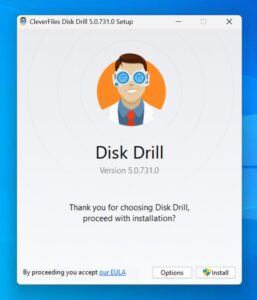
- Select your LaCie hard drive and click Search for lost data.
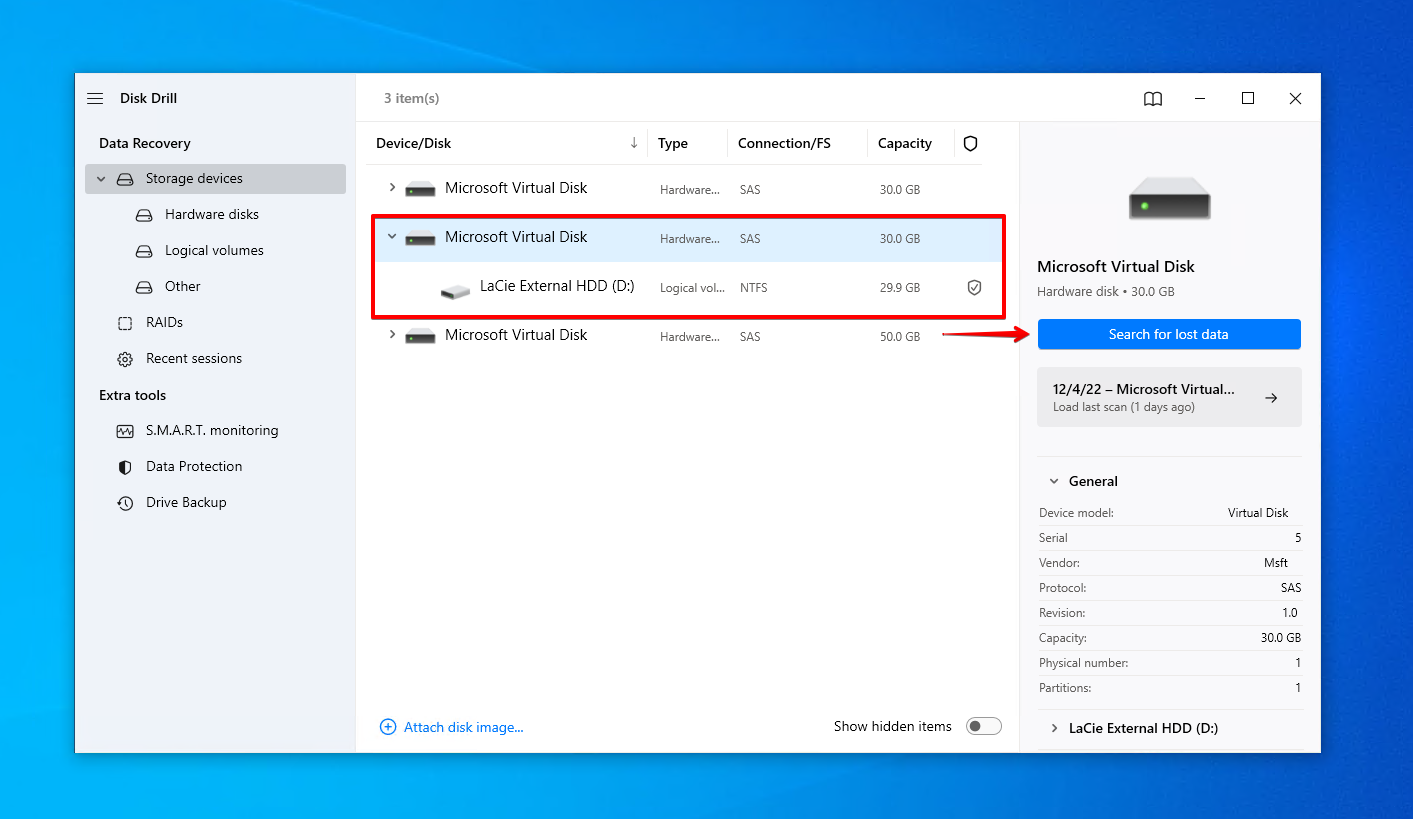
- Click Review found items once Disk Drill is finished scanning your LaCie hard drive. Alternatively, click Recover all to recover everything immediately.
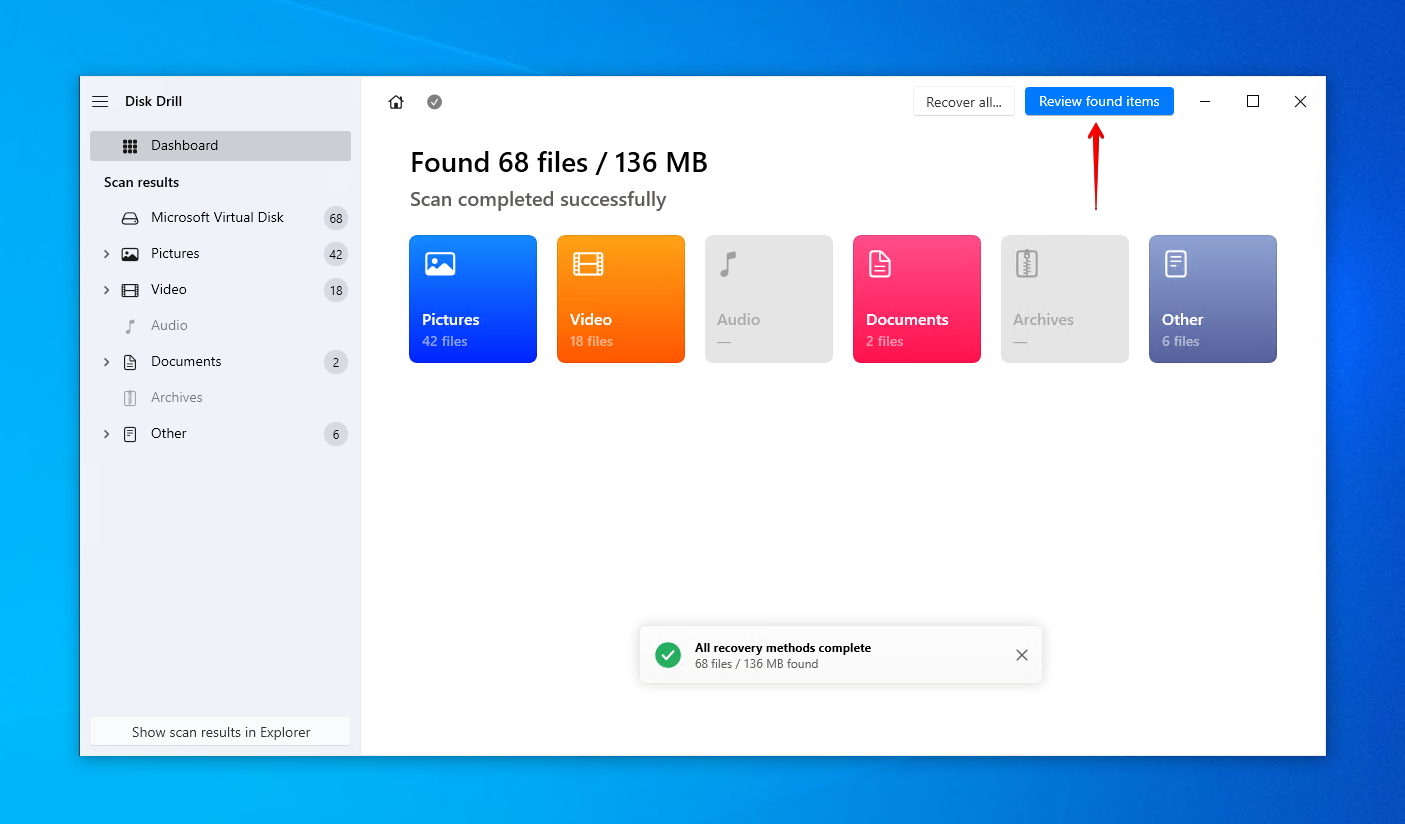
- Mark what files you’d like to recover from the LaCie drive. Click Recover when you’re ready.
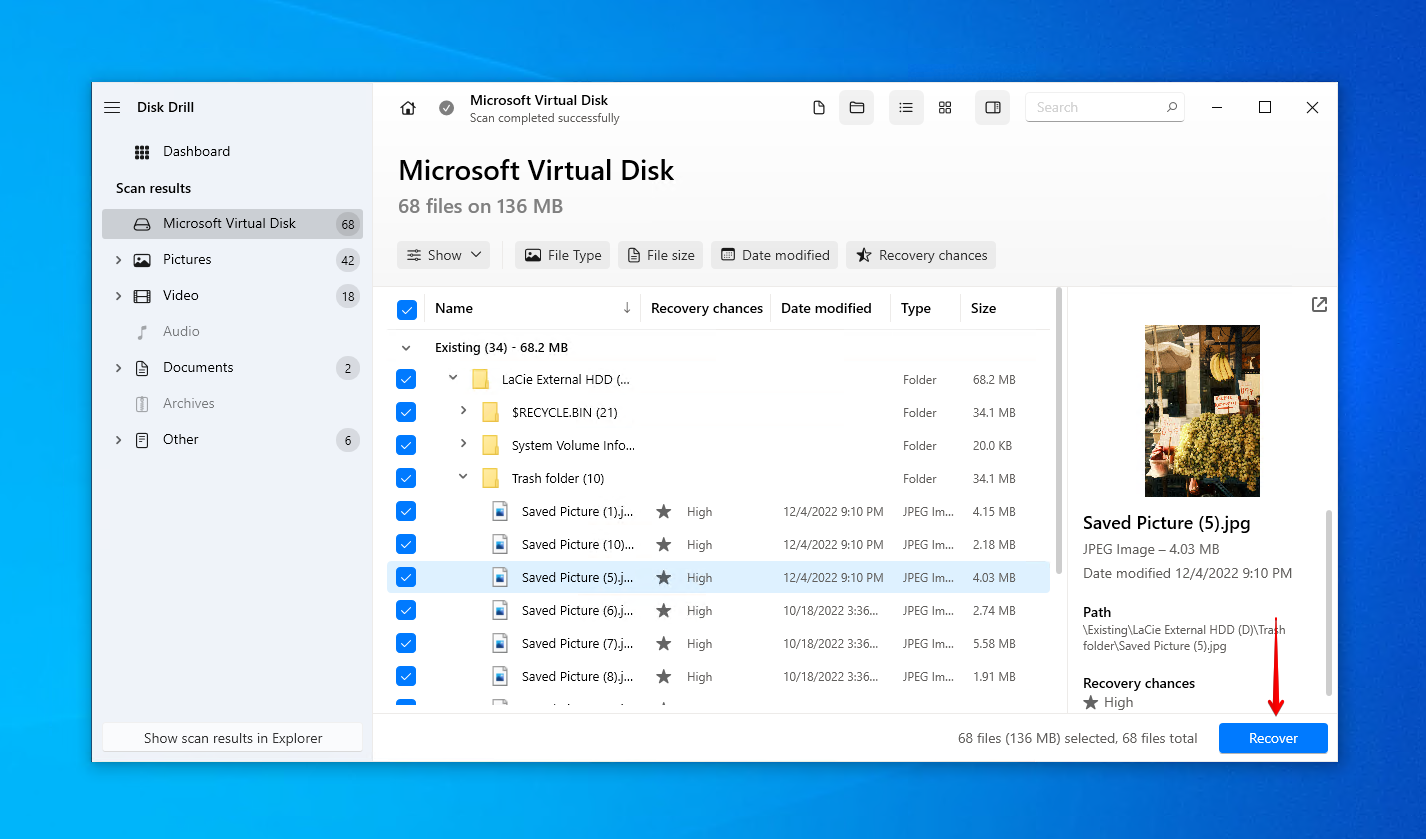
- Choose an appropriate recovery location and click Next.
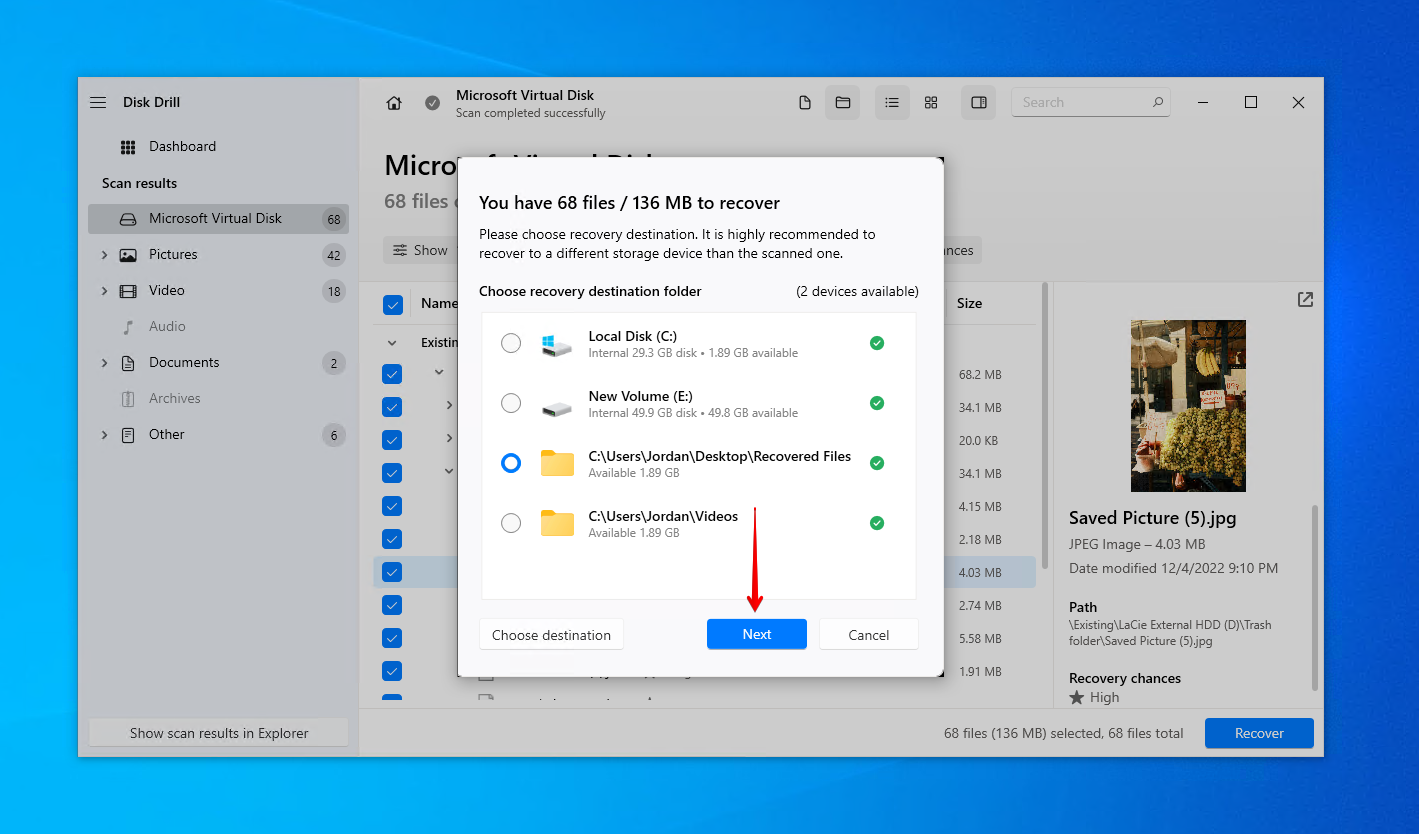
Once recovery is complete, consider making use of File History, a reliable backup utility built-in to Windows. You can also continue to make use of Disk Drill by enabling its free active disk monitoring feature. This will keep an eye on your LaCie hard drive’s S.M.A.R.T. (Self-Monitoring, Analysis and Reporting Technology) data and alert you to any issues it detects.
Method 2:Data Recovery Service With Warranty
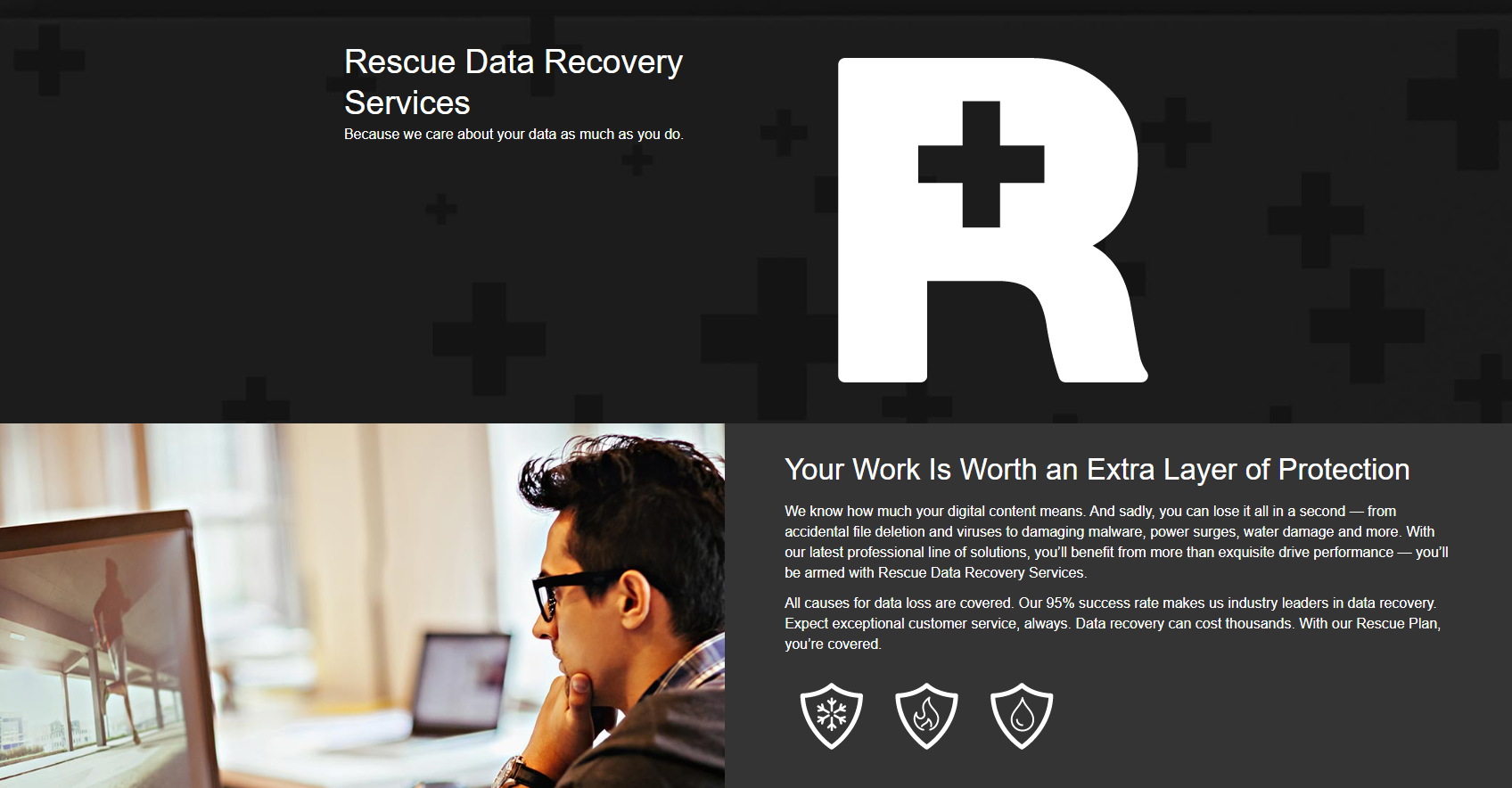
Most LaCie hard drives and solid-state drives come with a LaCie data recovery warranty. The duration of your warranty differs depending on the device. If you’re covered under warranty, you can use Rescue Data Recovery Services to have a team of professionals recover your data for you in a professional Seagate recovery facility.
Not sure if you’re still under warranty? Check now on the Seagate website.
To make a claim on your warranty, reach out to the Seagate Warranty & Technical Support team to begin the process.
Method 3:Data Recovery Service Without Warranty
If your warranty has lapsed, you can rely on the Clever Files data recovery service. This data recovery service covers all major hard drive brands and manufacturers, including Seagate data recovery. Whether you need to recover files from a LaCie external hard drive or multiple LaCie drives that were part of a NAS device, you can rest easy knowing you’re getting the best possible coverage from a team of specialists equipped with the latest and greatest knowledge and technology for data recovery.
Here’s a quick overview of what this process would look like:
- Click Start Recovery.
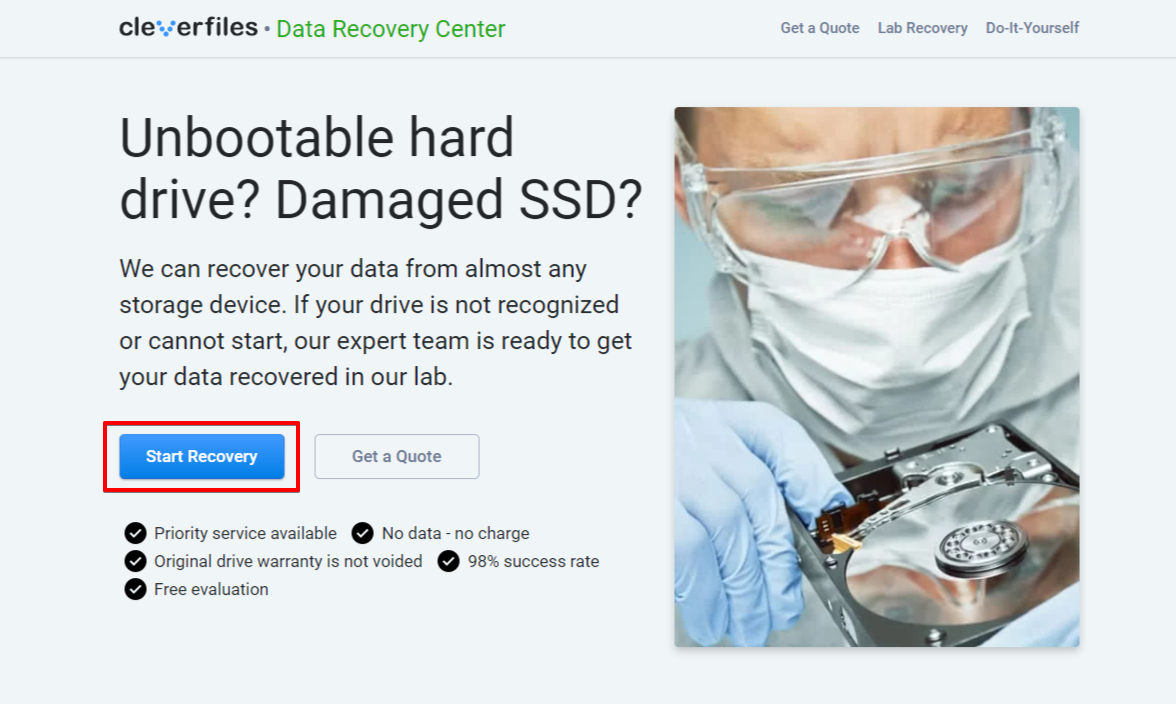
- Fill out the work order with all of your information.
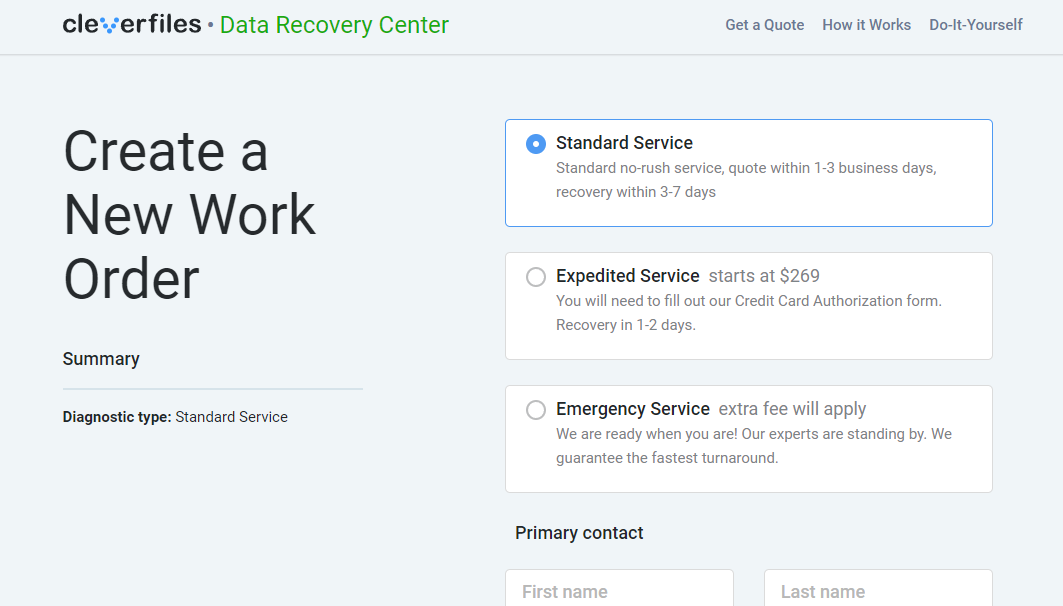
- Submit the work order and send your drive away.
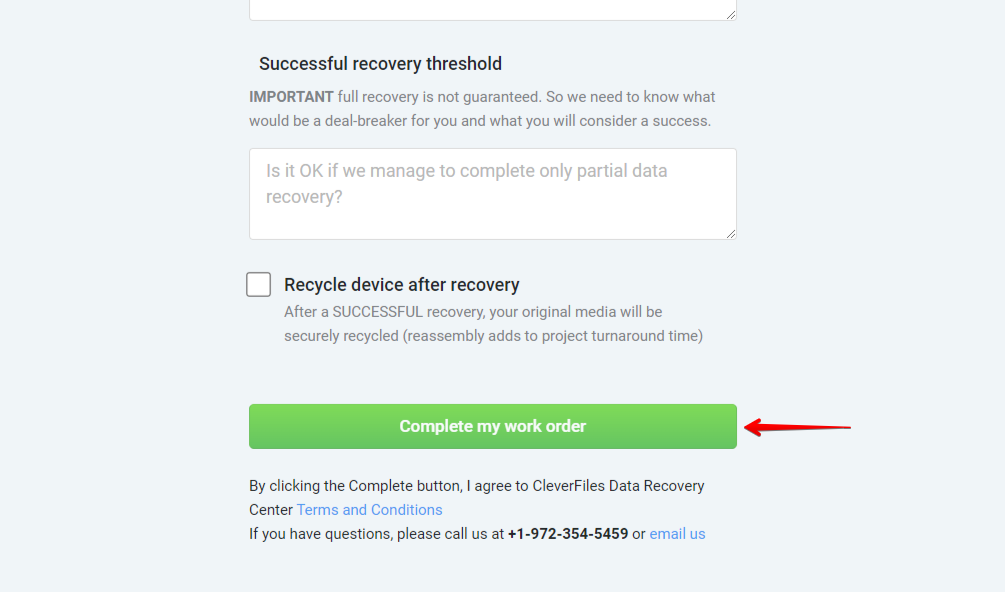
Once recovery is complete, your data will be returned to you on a healthy storage device, ready to be restored.
What to Do If LaCie Hard Drive Is Not Showing Up
There are times when your Lacie hard drive will encounter a problem that causes it to stop showing up on your computer. Before you can perform LaCie data recovery yourself, the hard drive must at least be visible in Disk Management and read the correct storage size. Otherwise, data recovery software won’t be able to scan it.
Thankfully, in many cases (typically those of logical damage), your LaCie hard drive can easily be fixed with one of the below solutions.
Method 1:Use Another Port or Cable
It could be a connection problem. First, try connecting your LaCie hard drive to another port on your computer. Preferably, connect the hard drive to a USB port that’s on your motherboard as opposed to one on your desktop case, as it offers a direct connection.
If this doesn’t fix it, try replacing the cable of your LaCie hard drive. A faulty cable can cause intermittent connectivity problems.
Method 2:Run a Troubleshooter
Windows comes with a bunch of useful troubleshooters that are designed to find and fix various problems. Each troubleshooter has a specific purpose. The troubleshooter we’ll be using is the Hardware and Devices troubleshooter to see if it can scan for your LaCie hard drive and fix the problem that’s preventing it from showing up.
Here’s how you run the Hardware and Devices troubleshooter:
- Right-click Start and click Terminal (Admin). If you’re using Windows 10, click Windows PowerShell (Admin) instead.
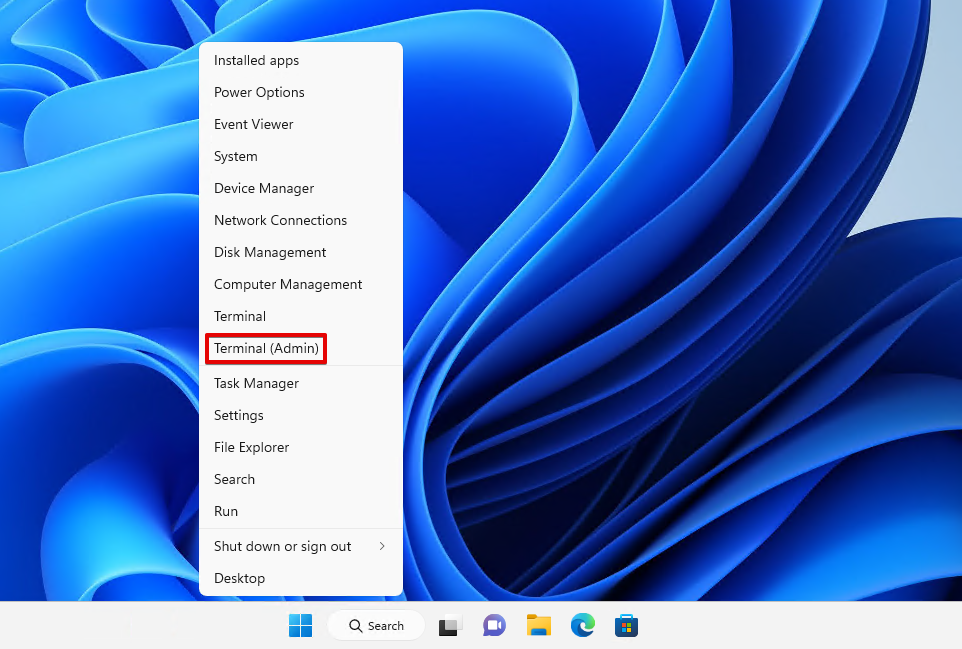
- Type
msdt.exe -id DeviceDiagnosticand press Enter.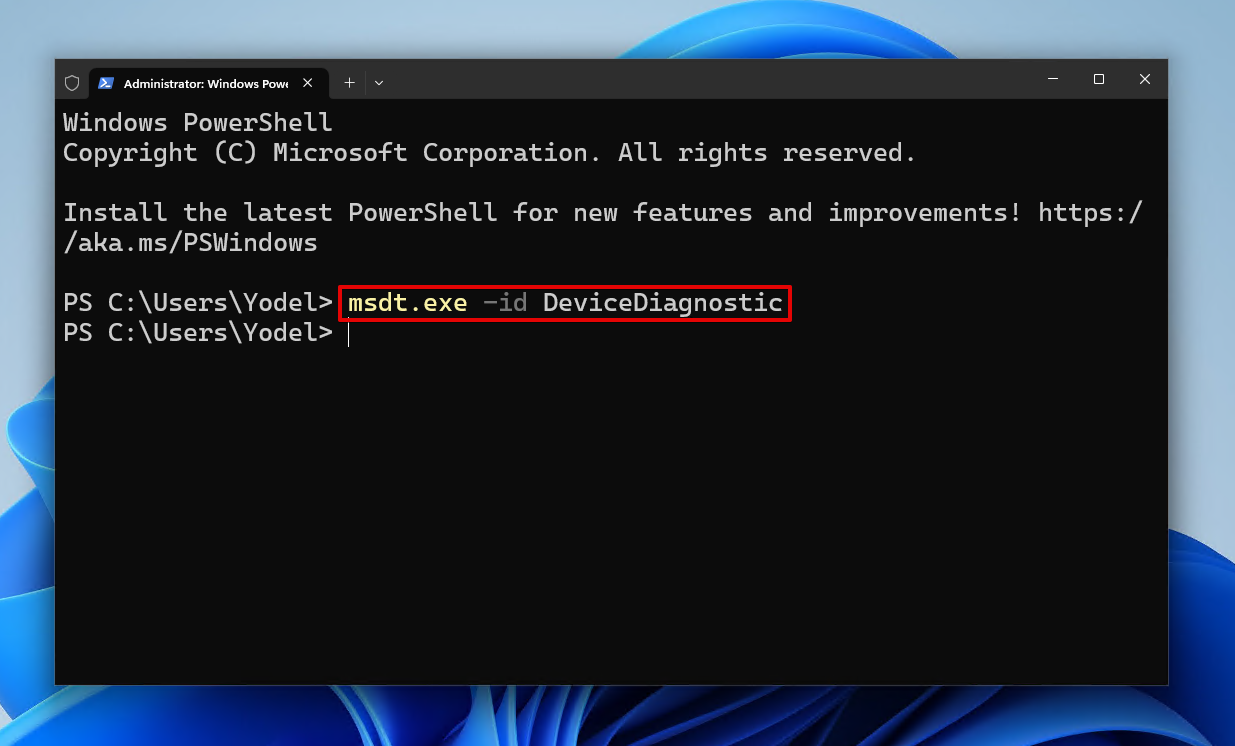
- Click Advanced and make sure that Apply repairs automatically is ticked. Then, click Next.
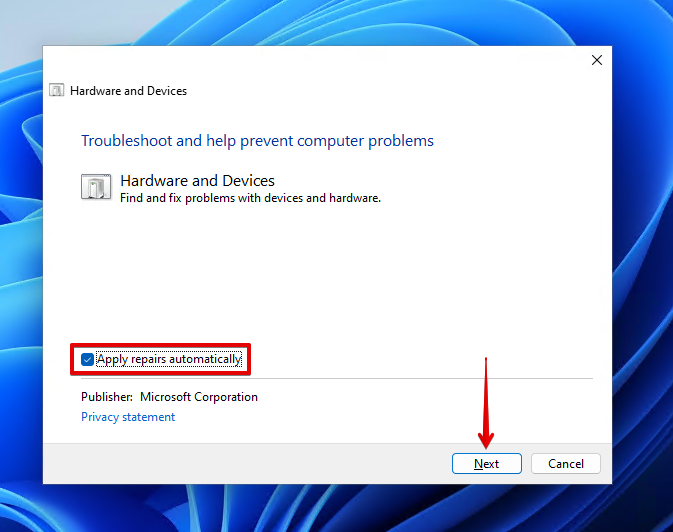
- Apply the suggested fixes.
Method 3:Apply CheckDisk Command
CheckDisk is capable of repairing issues with your LaCie hard drive. It’s a repair tool that locates volume-related problems. With the use of parameters, it can even be used to fix any issues that it finds, even bad sectors.
Follow these steps to run CheckDisk on your LaCie hard drive:
- Right-click Start and click Terminal (Admin). If you’re using Windows 10, click Windows PowerShell (Admin) instead.

- Type
chkdsk *: /r. Replace * with your LaCie drive letter. Press Enter.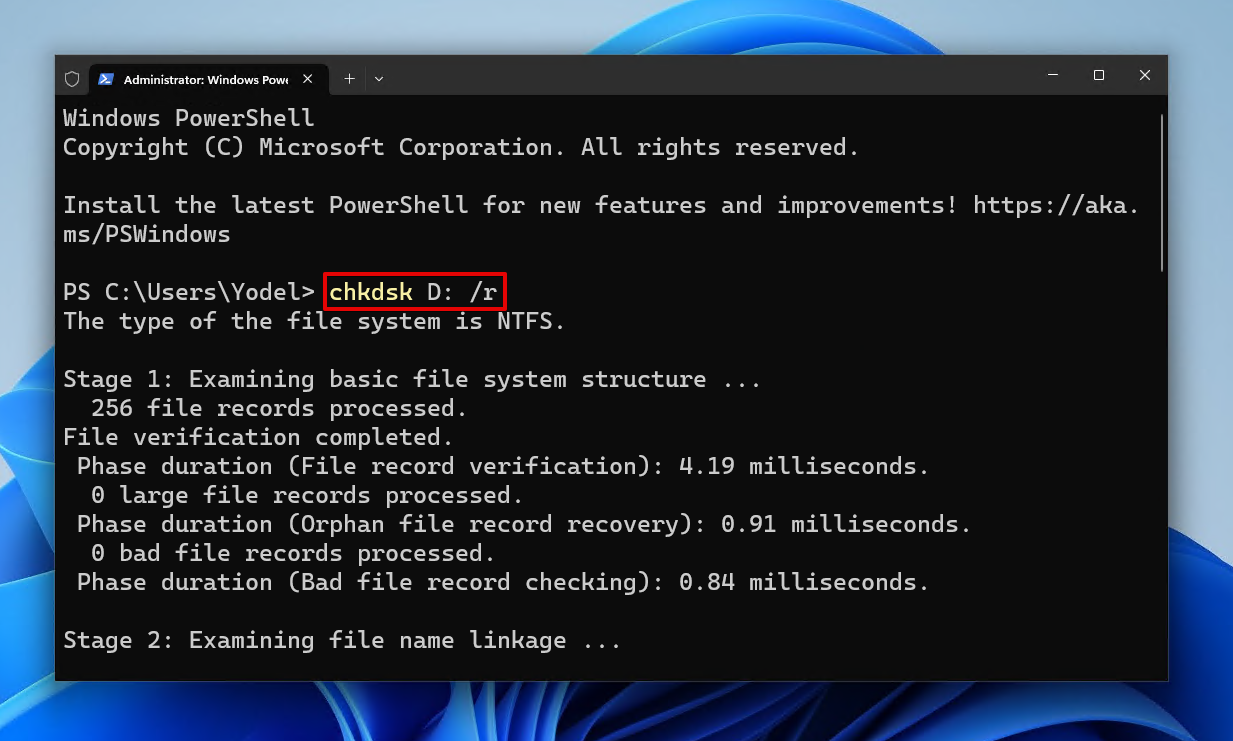
Method 4:Update Drivers
Drivers are an essential part of the communication between your LaCie hard drive and your computer. Without functional drivers, the hard drive will not be able to communicate with your computer and will not show as an available storage device. Drivers can become problematic when they’re outdated or corrupted.
These instructions will show you how to update or reinstall your LaCie hard drive drivers:
- Right-click Start and click Device Manager.
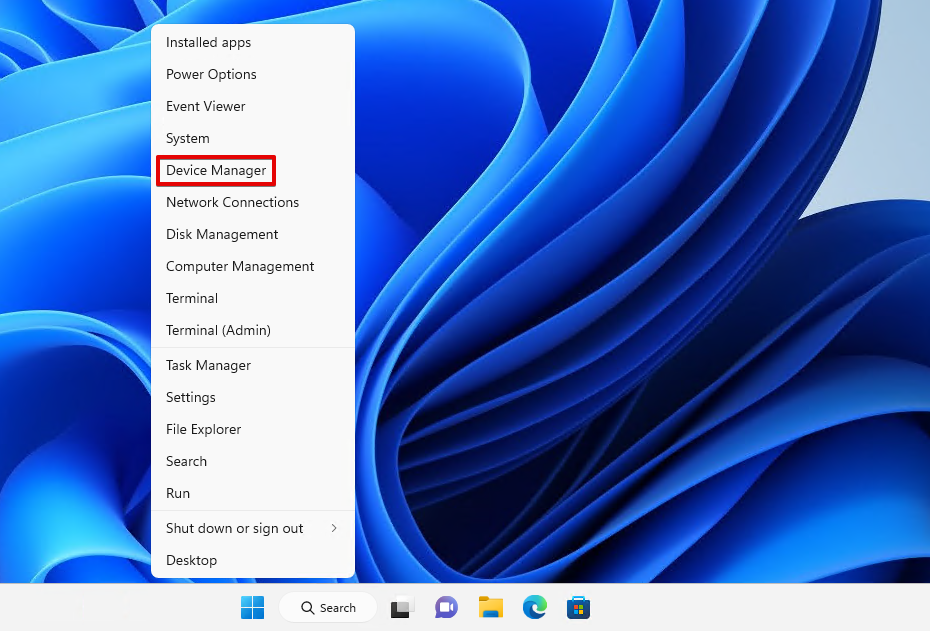
- Expand Disk drives. Right-click your LaCie hard drive and click Properties.
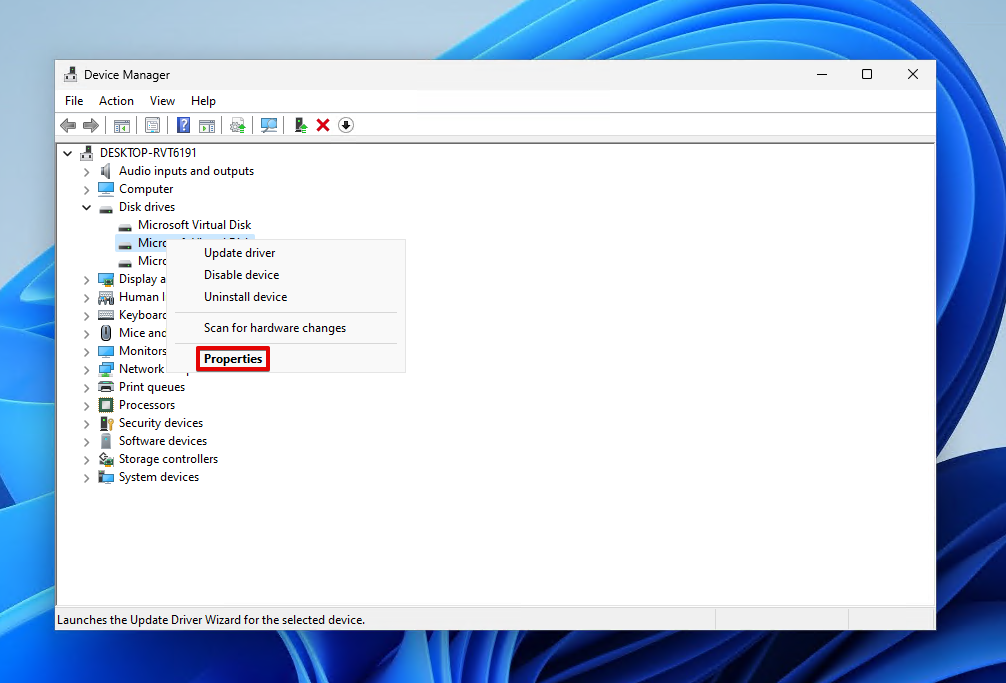
- Click the Driver tab, then click Update Driver.
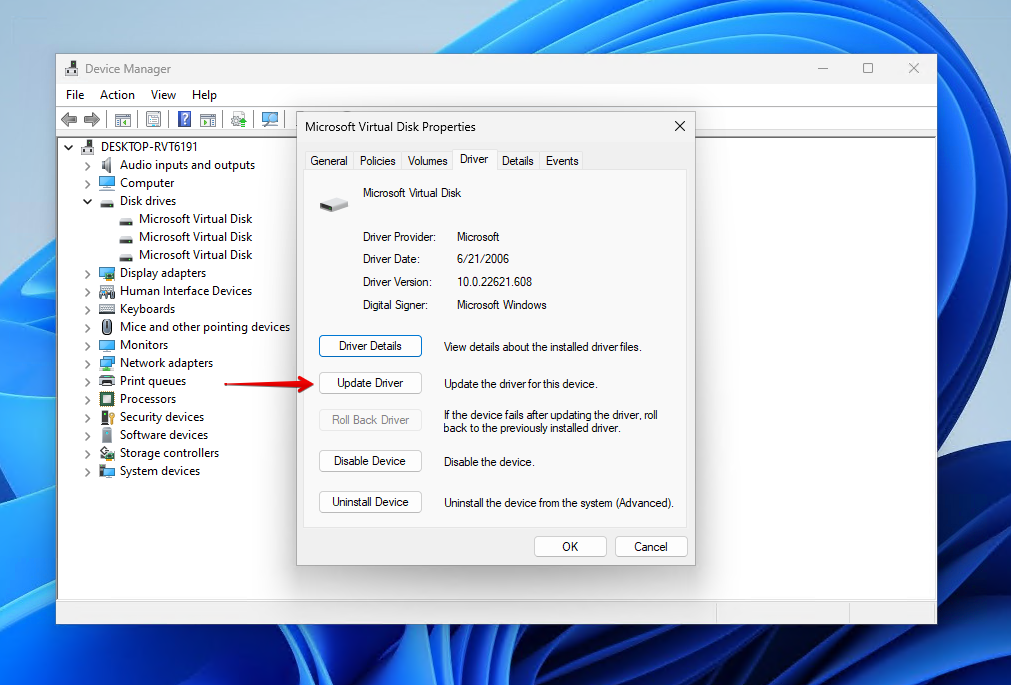
- Click Search automatically for drivers and install the latest drivers available. If none are available, go back to your LaCie hard drive properties.
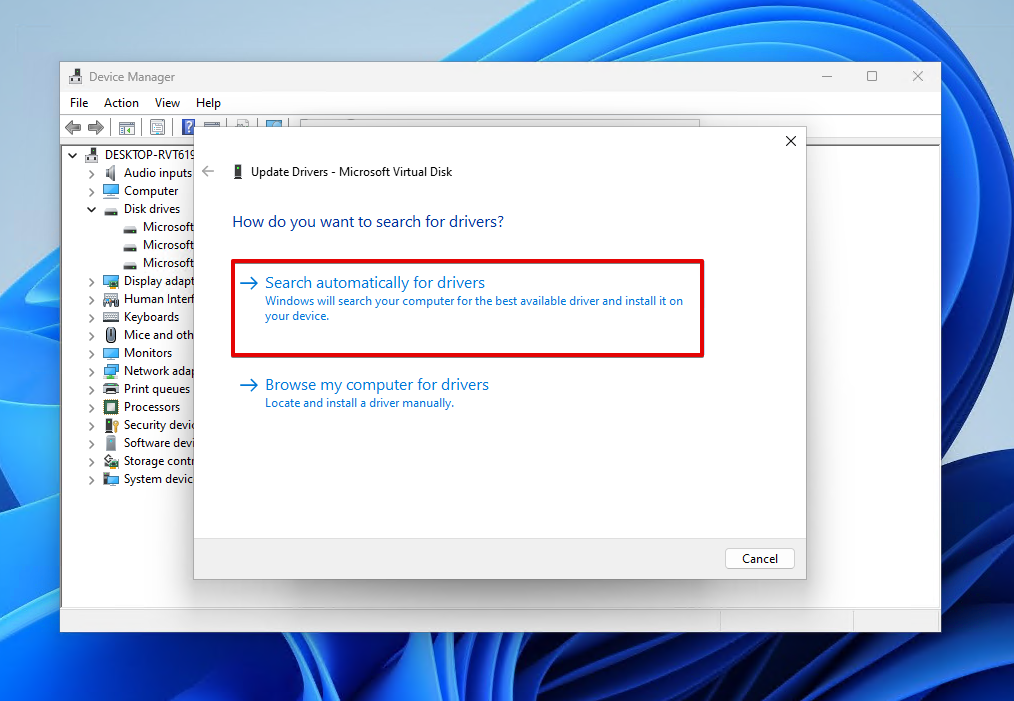
- Click Uninstall Device.
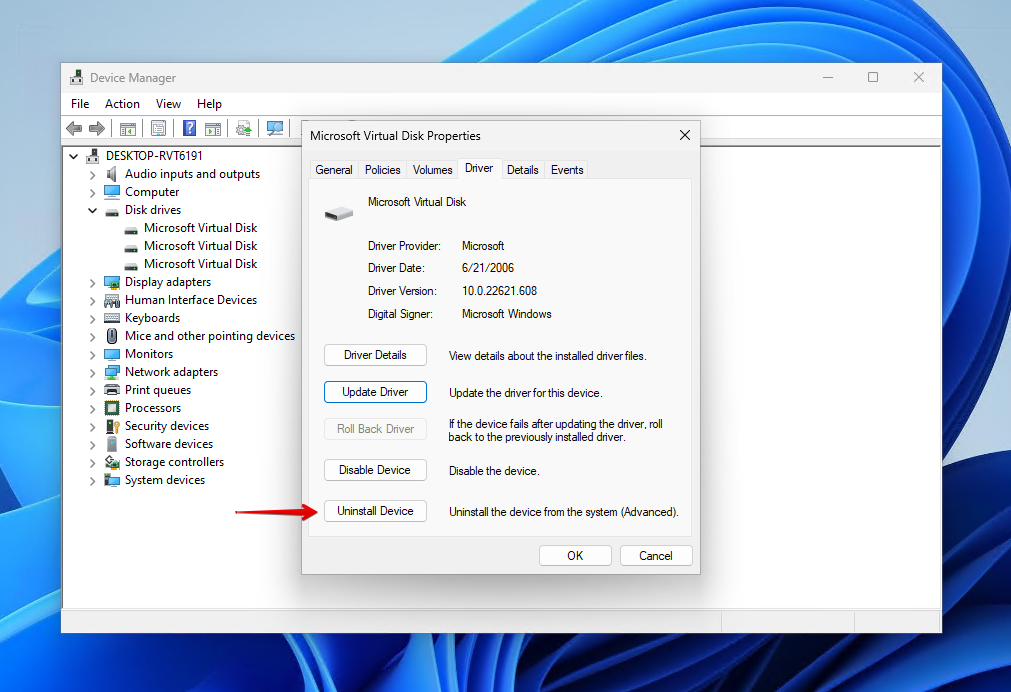
- Click Uninstall. Disconnect and reconnect your LaCie hard drive to force the drivers to reinstall.
Method 5:Format the Drive
Formatting is somewhat of a general solution when it comes to hard drive-related errors. It overwrites your current file system with a new one, deleting all of your data in the process and resetting the drive to a blank slate. Since this will delete your data, be sure to recover as much data as you can beforehand. If you’re forced to format first, you can still perform data recovery following the format.
Follow these steps to format your LaCie hard drive:
- Right-click Start and click Disk Management.
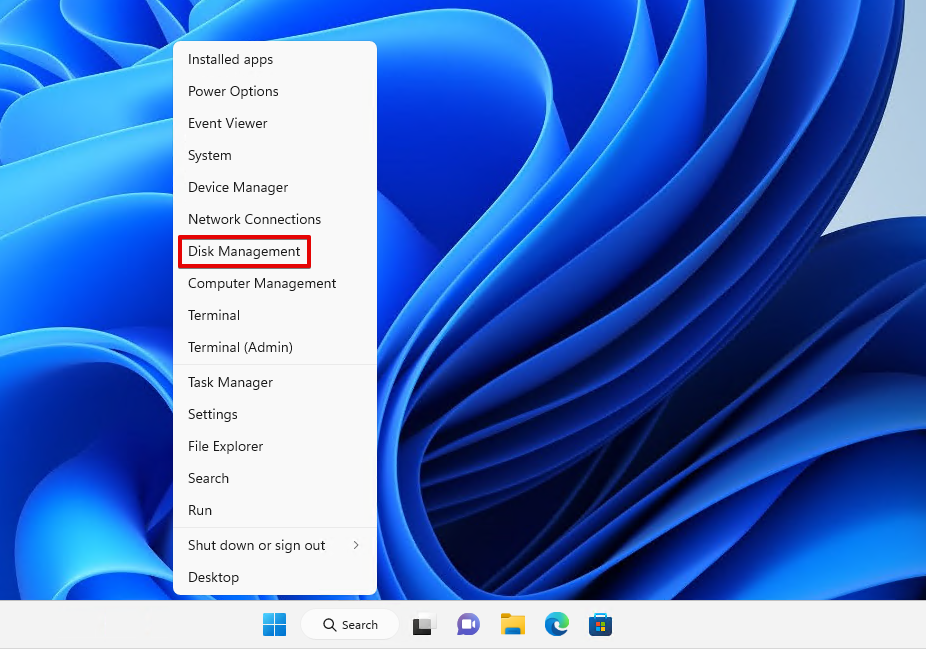
- Right-click the volume of your LaCie hard drive and click Format.
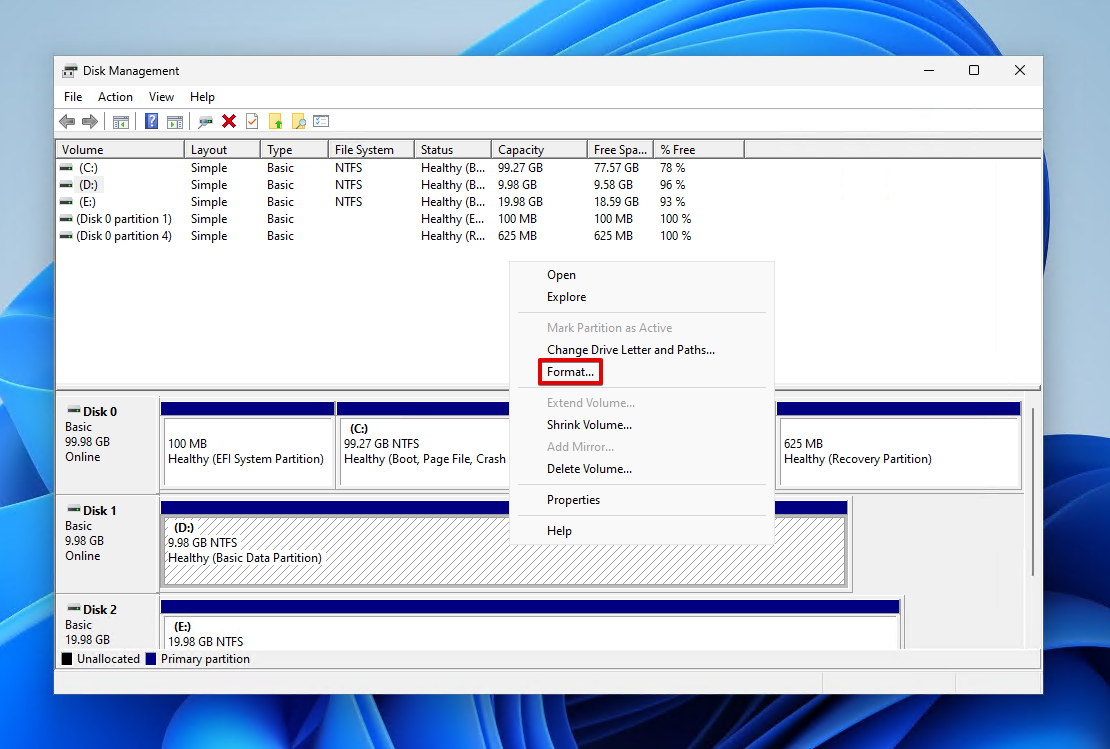
- Ensure Perform a quick format is ticked and click OK.
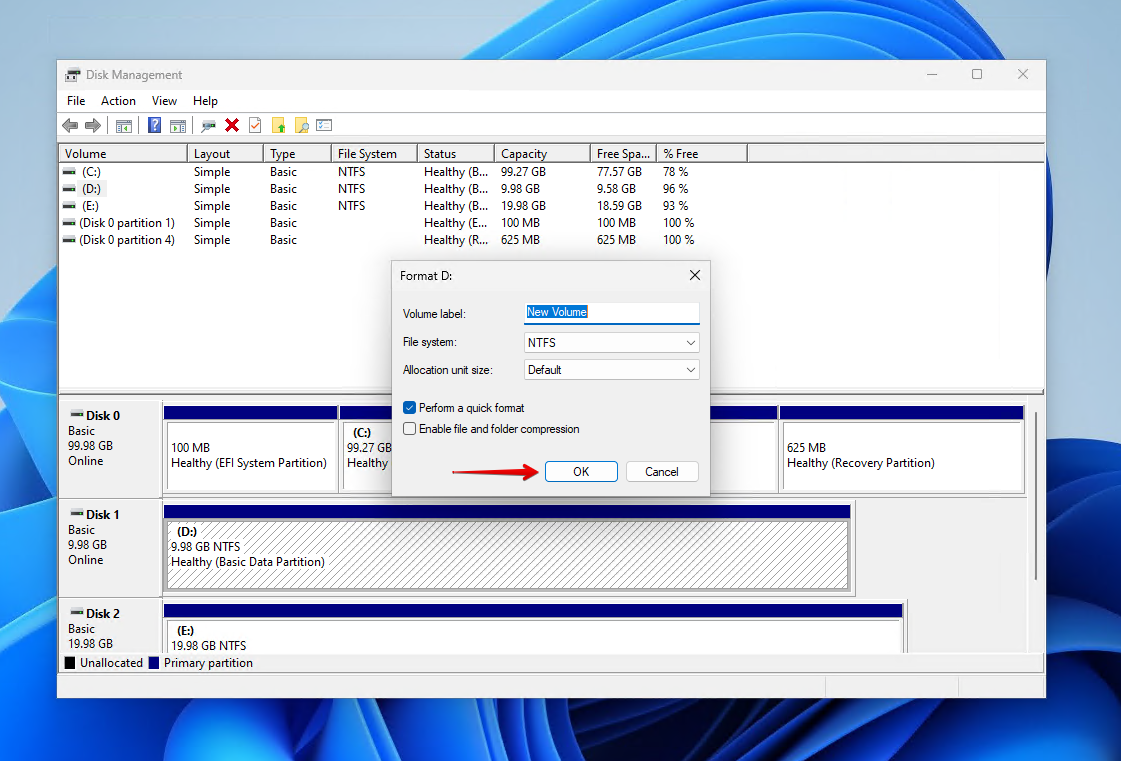
- Click OK again.
Conclusion
LaCie hard drives are a trusted choice of storage for many, though they are not without their faults. If your LaCie hard drive encounters a data loss event, be sure to act quickly in order to safely restore your data.
Start by recovering your data using Disk Drill, a data recovery tool that allows you to recover data at home. If the damage is so severe that this is not an option, or you’re just not comfortable doing it yourself, see if your device is still under warranty and qualifies for free recovery using Rescue Data Recovery Services. Otherwise, if it’s out of warranty, reach out to the Clever Files team to use their data recovery service.
